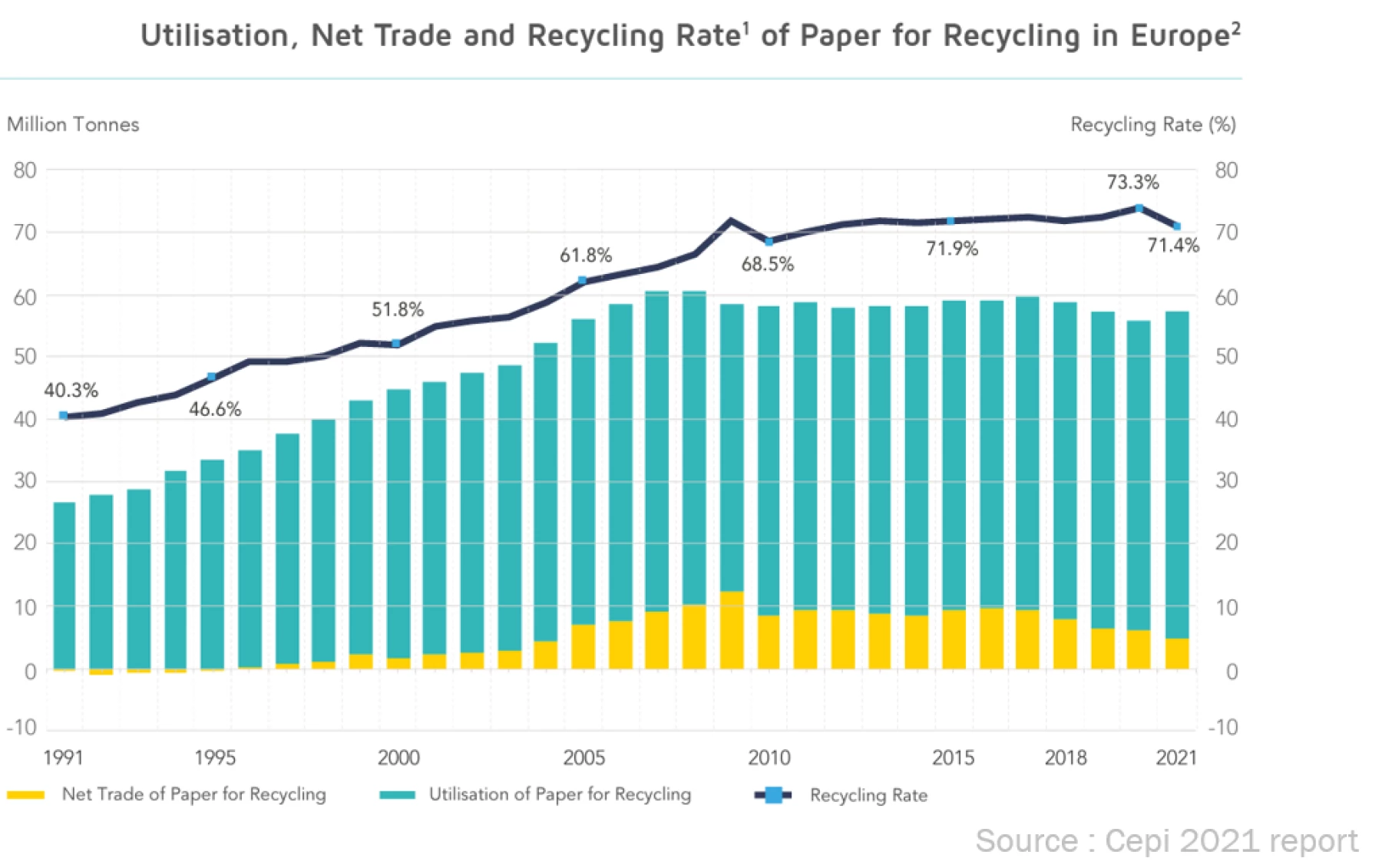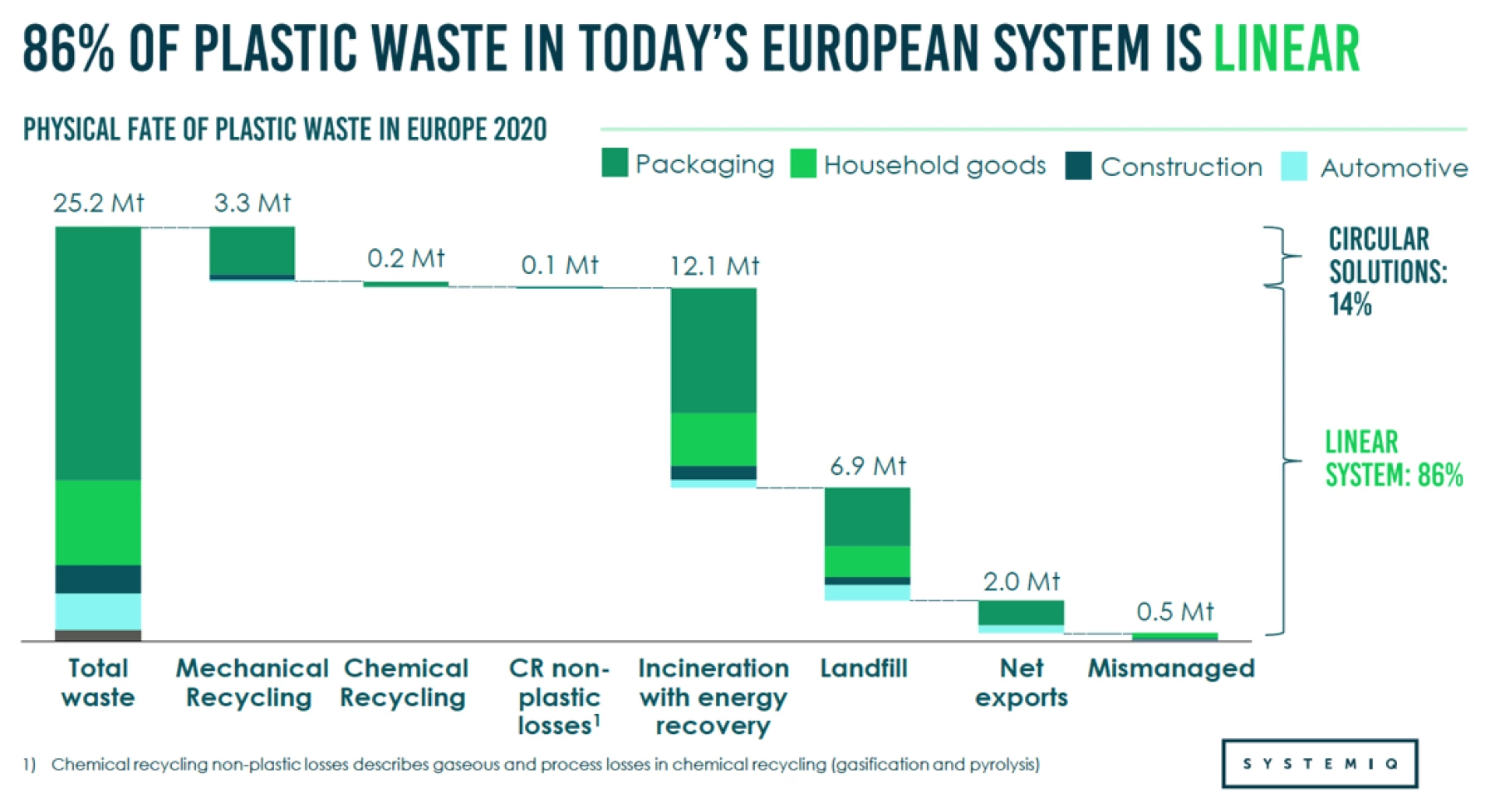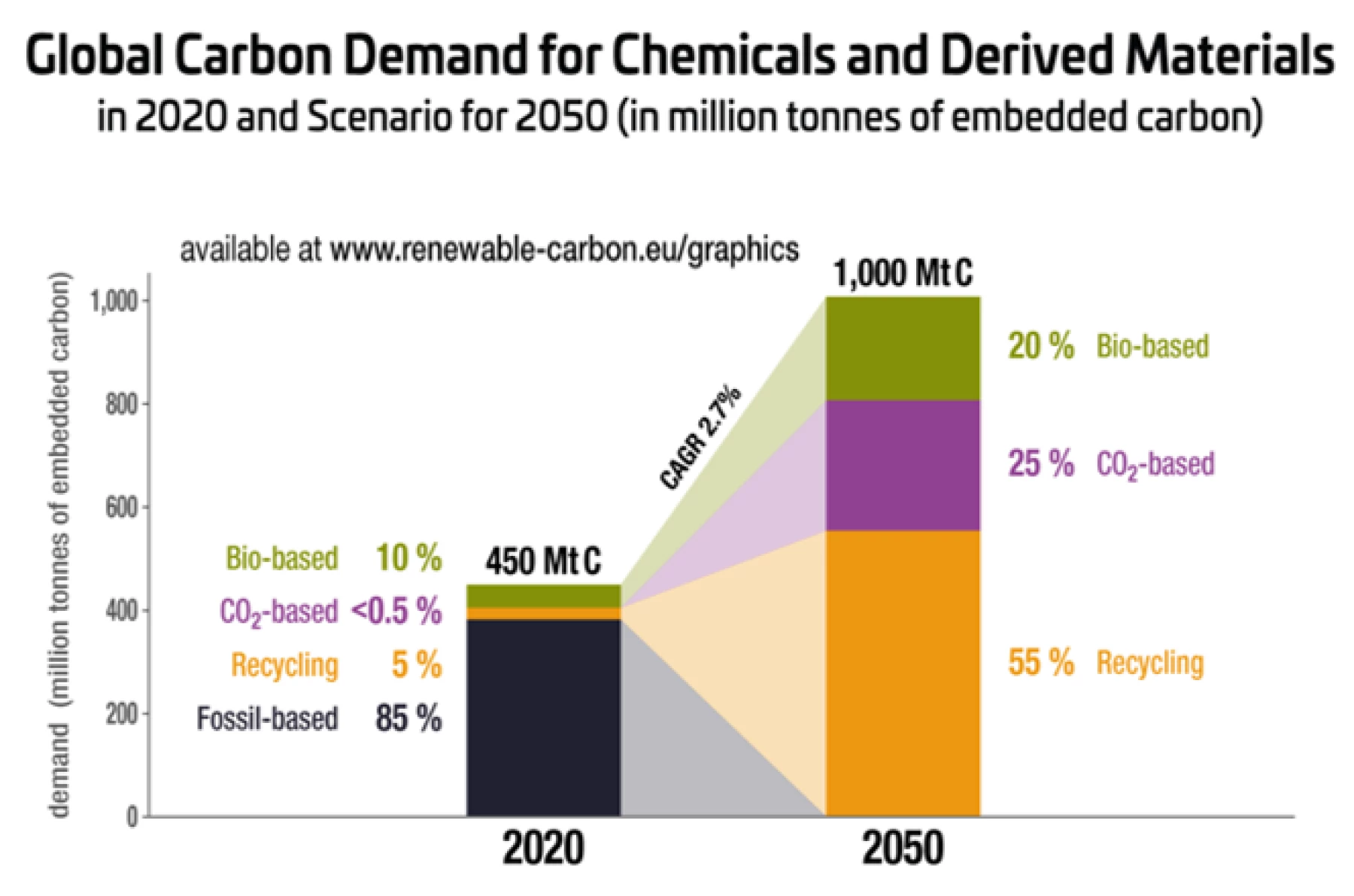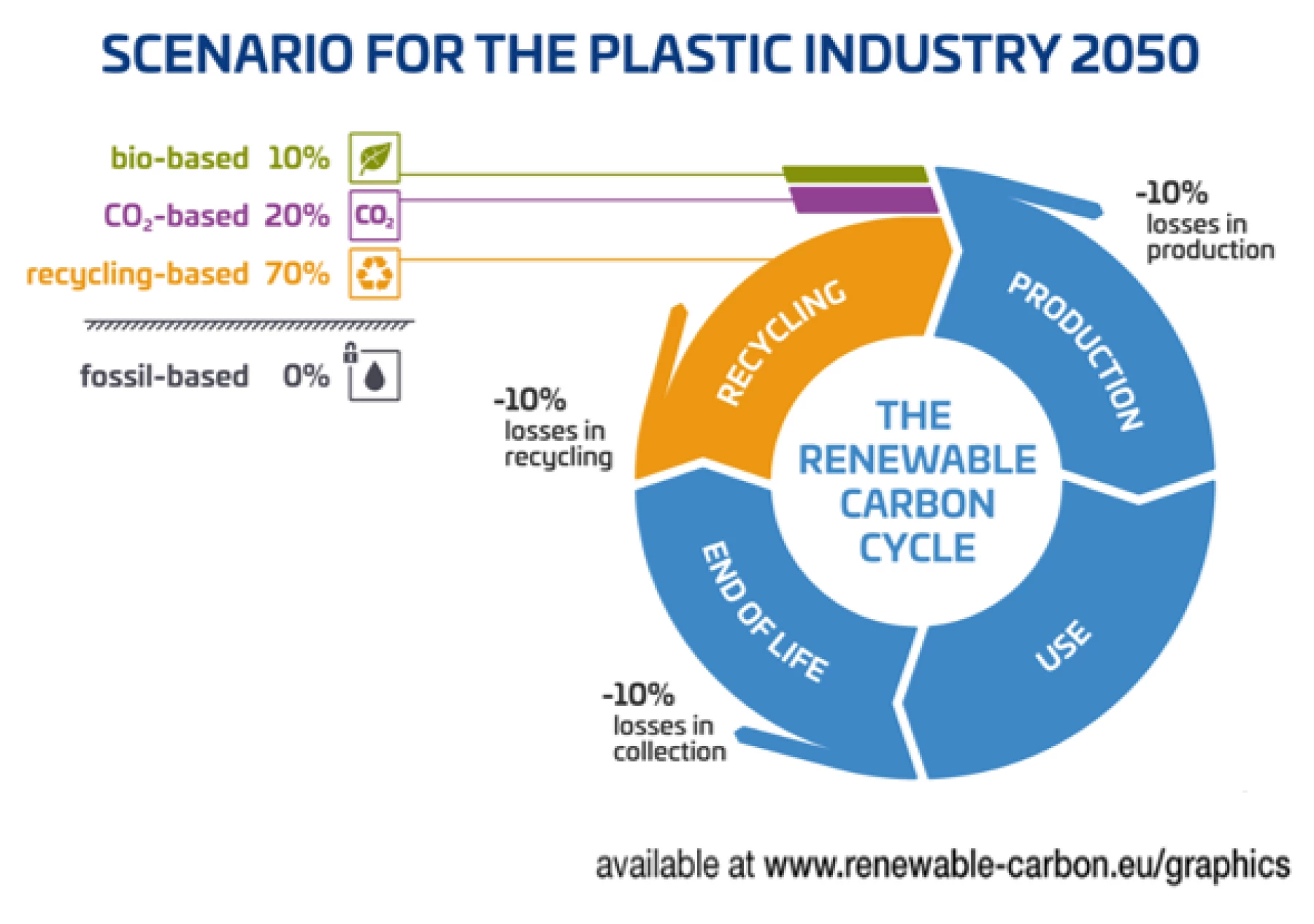Sustainability is a word that pops up in a lot of communications, marketing materials, company presentations and is dominant present in a lot of actual goals and targets. We need to take care of the resources of the planet and reduce the amount of CO2 that is pushed into the air, resulting in a temperature increase and potential irreversible climate change. With this in mind it means we will have to organize ourselves globally so we are capable of efficiently (re)use the materials available now on the surface of the earth. Recycling is something we know already for a long time. In Europe the recycling rate is higher than 70 % which is quite good. Not all paper can be recollected within a short time period (book, tissue paper, toilet paper, compostable plant buckets, …), but newspapers, magazines, packaging material, mailings, … are very well efficiently collected and reworked into new paper or board materials. It is clear that for making new white paper deinking is mandatory.
The situation for plastic material is completely different and very much less focussed on recycling. Approximately 60-65 million tons of plastic was produced in Europe in 2020. In the same year 25 million ton was collected as waste (mainly packaging and household goods). Of this amount only 14 % was reused through chemical and mechanical recycling. The rest was lost irreversibly….

The situation for plastic material is completely different and very much less focussed on recycling. Approximately 60-65 million tons of plastic was produced in Europe in 2020. In the same year 25 million ton was collected as waste (mainly packaging and household goods). Of this amount only 14 % was reused through chemical and mechanical recycling. The rest was lost irreversibly….

Nearly half of it was incinerated (with some heat recuperation) and transferred to CO2.. A quarter was landfilled which is also lost for future use. This is very scary if we look at the forecast for the demand for Carbon in the next coming 30 years. The Need will more than double and this increase will have to happen simultaneously with stopping to get Carbon from the sub surface of the earth. Defossilization means we will have to make sure that mankind finds the Carbon it needs in the amount which is actually available in the top layer (also called the troposphere). Nor more digging up of gas, oil and coal to provide in the necessary Carbon.

Since there is no indication that we will not need organic molecules anymore in the future (on the contrary) we are going to have to look for reusing the Carbon which is available right now, converting a part of CO2 into useful chemicals using hydrogen chemistry and adding a part by using biobased sources that have done the latter bio chemical processes. This latter part will also be needed to refill the Carbons that are lost (e.g. detergents and soaps, pharmaceuticals…).
The energy supply for transport, electricity and chemical processes will have to come from non Carbon (renewable) sources like wind, solar, hydro and nuclear energy.

This is what has to be understood under defossilization. It is certainly not a decarbonisation ! It means that the world is going to need a lot hydrogen to back convert current and future CO2 back to useful chemicals and that the plastics needed in food packaging will have to be much better collected, deinked and mechanical recycled, or treated by non fossil heat and hydrogen into newly usable monomers and other basic chemicals.
This means that biobased sourcing will be important, but the use of recycled material will be much more important to keep the renewable Carbon cycle turning around. The complexity of the materials will have to be reduced in such way that separation, collection and recycling is made easier and more efficient. It also means that solvents still can be used but the reuse and or recycling will be key and the burning will be forbidden. The nature of the Carbon of the ink components will be different (biobased or recycled) and will not be fossil based anymore. Polymers and pigments will be made from different chemical sources and after use the inks will have to be separated from the substrates and recycled to keep the Carbon in the circle. Process energy reduction will also remain important in the printing process from a cost point of view and for accelerating the conversion away from fossil fuels. The sustainable future will be much more than biobased alone !
by Dr Lode Deprez – VP Technology Xeikon
This text is reproduced with kind permission of Xeikon Manufacturing, you can read the original article first published here.
